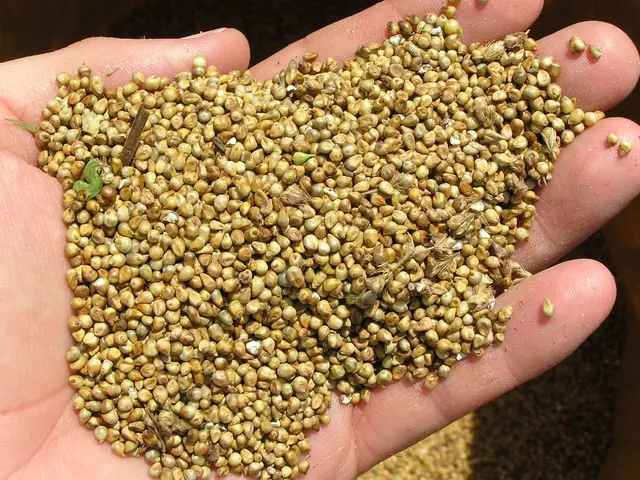Saarland grapples with tularemia outbreak; Ministry of Health issues alert on rabbit fever
Tularemia Cases Confirmed in Saarland: Health Minister Urges Caution
Tularemia, also known as rabbit fever, has been confirmed in five cases in Saarland in 2024. This bacterial disease, which can be transmitted through contact with infected wild animals, their carcasses, contaminated water, or undercooked meat, has raised concerns among health officials.
Quick diagnosis and timely therapy are crucial for the course of Tularemia. Symptoms, which usually manifest suddenly with symptoms like high fever, chills, fatigue, headache, body aches, and swollen lymph nodes, should not be overlooked. If symptoms of tularemia occur, seek medical attention immediately.
At-risk groups include hunters, forest and farm workers, people with frequent contact with wild animals, and those who regularly spend time in nature. To reduce the risk of infection, experts recommend avoiding contact with wild animals such as rabbits, hares, and rodents that may carry Francisella tularensis, the causative bacterium.
In situations with unavoidable wild animal contact, it's advisable to wear disposable gloves, an FFP2 mask, and protective goggles. Additionally, taking care when outdoors, particularly in rural or forested areas where the bacterium may be present in soil or water, is crucial.
Effective protection against tick and biting fly bites is also recommended, especially during warmer months when these insects are more active. It's advised to apply insect repellent and avoid areas with high tick or fly populations.
Health Minister Magnus Jung has urged at-risk groups to exercise increased caution. He emphasised the importance of preventive measures such as avoiding contact with wild animals, using protective clothing and gloves when handling potentially infected animals or carcasses, and taking care when outdoors.
Preventive measures also include promptly cleaning and disinfecting any wounds or cuts to reduce infection risk. Educating at-risk populations and healthcare providers to recognise symptoms for early diagnosis and treatment is also crucial.
Currently, no approved tularemia vaccine is available for civilians in Germany or globally. However, promising vaccine candidates such as ATI-1701 show 100% protection in animal studies. Therefore, preventive behaviours remain the cornerstone of tularemia risk reduction in areas like Saarland.
If you are living or working in Saarland in occupations such as farming, hunting, or forestry where exposure risk is higher, following these measures and local health authority guidance is advisable. Monitoring public health updates from German health officials can provide region-specific recommendations.
It's important to note that Tularemia is a notifiable disease, meaning that healthcare providers are required to report cases to public health authorities. This allows for effective tracking and control of the disease.
For more information on Tularemia and preventive measures, see the health ministry's website or your local health department. Stay safe and be vigilant in the outdoors.
- In the context of Tularemia, seeking immediate medical help is vital, especially for those working in at-risk occupations like farming, hunting, or forestry.
- Chronic diseases might not be a direct worry in the case of Tularemia, but the importance of health-and-wellness during recovery cannot be undermined, as symptoms like fatigue and headache can be severe.
- To combat the risk of Tularemia, experts recommend implementing fitness-and-exercise routines for increased physical resilience and overall health, which could aid in a faster recovery.
- In addition to other preventive measures, mental-health should also be considered during this time. Regular stress from outbreaks can affect one's mental wellbeing, making it essential to maintain a positive mindset using CBD or other stress-relieving practices.




